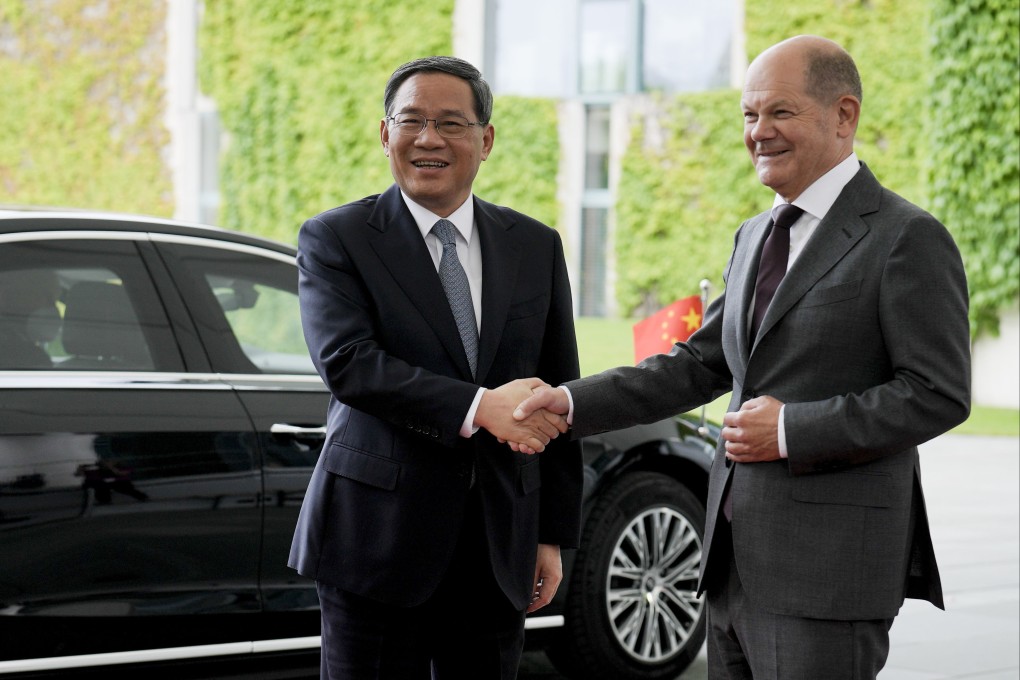Advertisement
In Germany, Chinese Premier Li Qiang tells businesses not to mistake interdependence for insecurity
- ‘Risk prevention and cooperation are not opposites’, Li tells Berlin meeting of industry leaders
- German business representatives reportedly confident in China’s economic outlook despite recent doubts about the country’s post-pandemic recovery
Reading Time:2 minutes
Why you can trust SCMP
1

Chinese Premier Li Qiang has called on German businesses to properly assess “risk” and to not mistake interdependence for insecurity, at a meeting with industry representatives in Berlin on Monday.
China’s No 2 official instead urged greater “openness and cooperation” between Chinese and German industries as he seeks to shore up relations in Europe during his first official state visit since being elevated to premier in March.
“Risk prevention and cooperation are not opposites,” Li said, according to state news agency Xinhua.
Advertisement
“It is understandable that all parties have their own security concerns, [but] what is important is how to reasonably define and guard against risks. If not handled properly and the risks are amplified, more and bigger problems will only be created.”
Attendees at the meeting reportedly included representatives from Siemens, Volkswagen, Mercedes-Benz, BMW, Schaeffler and Allianz.
Advertisement
Advertisement
Select Voice
Choose your listening speed
Get through articles 2x faster
1.25x
250 WPM
Slow
Average
Fast
1.25x
